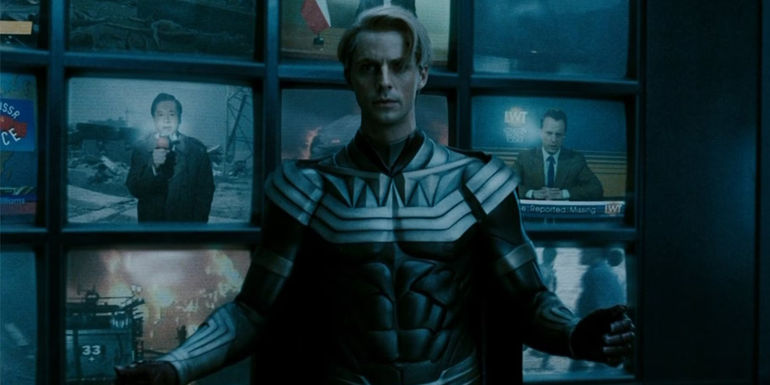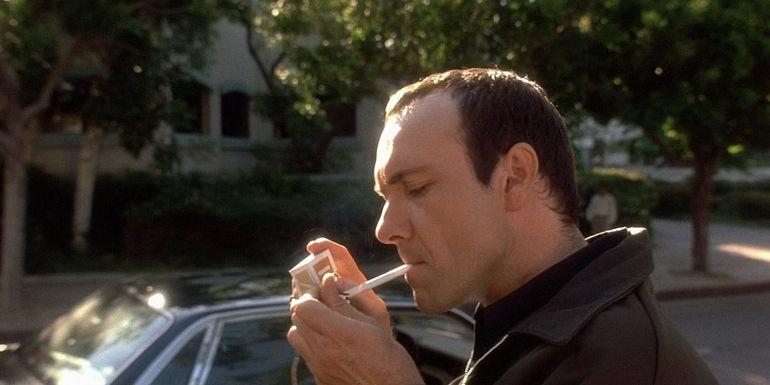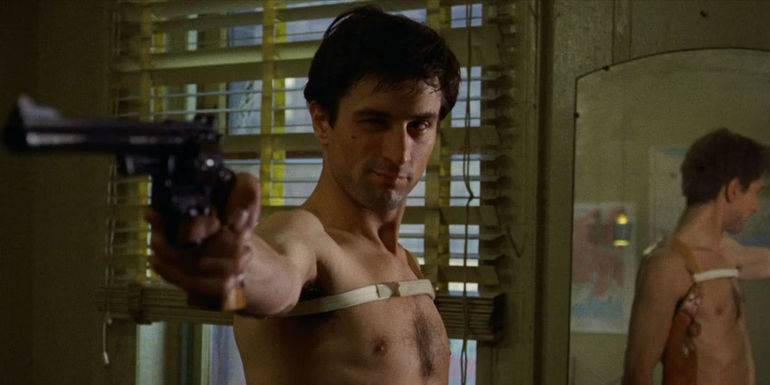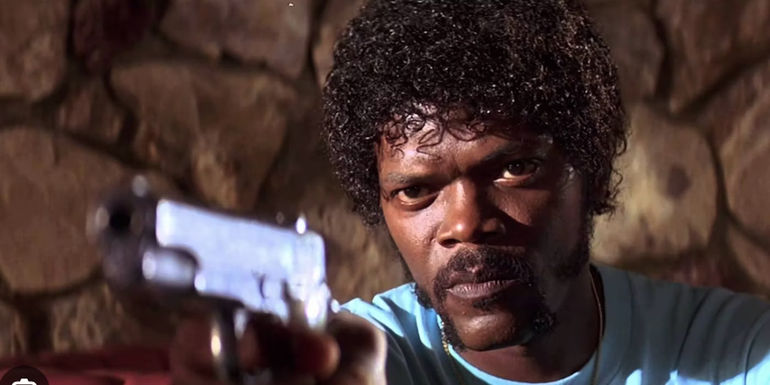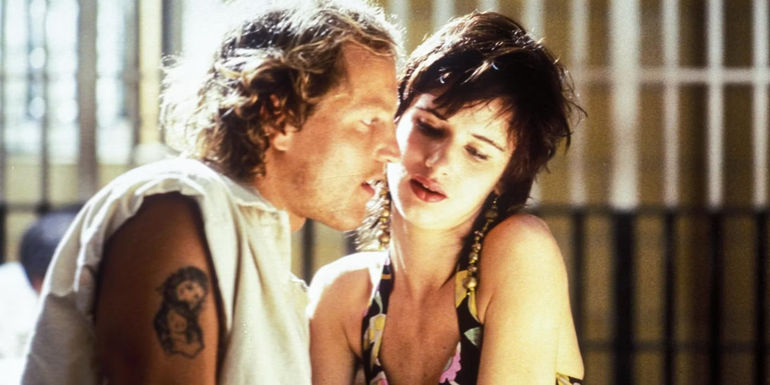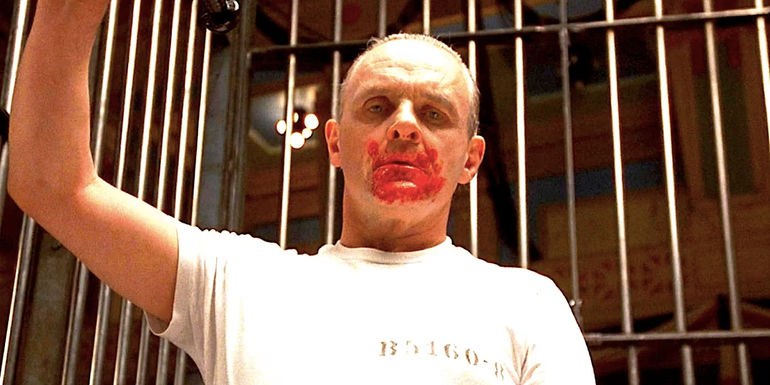
Top 9 Movies Where the Killer Gets Away

In a departure from conventional narratives, these movies defy the expectations of justice prevailing and instead explore the darker aspects of human nature and crime. The perpetrators skillfully evade capture, leaving audiences with a sense of moral ambiguity and a profound exploration of crime, motive, and consequence.
Watchmen (2009)
Inspired by arguably the greatest antihero DC title of all time, Watchmen is a sleek and sordid examination of the unchecked power of superheroes if they existed in the real world. In the movie's super-powered lineup, Doctor Manhattan and Ozymandias are standout heroes for their immense intellect and extraordinary abilities.
Ozymandias (Matthew Goode) standing in front of TV screens in Watchmen
In the end, however, Watchmen culminates not only with revealing that the two are separately responsible for the deaths of millions, but that they also completely evaded any external consequences for what they've done. Manhattan mourns these facts, whereas Ozymandias revels in them - presenting vastly different but equally important perspectives about absolute power and authority.
The Usual Suspects (1995)
The Usual Suspects centers on a mysterious criminal, Keyser Söze, whose identity is shrouded in secrecy. As a group of criminals recounts their involvement in a heist, a complex web of deception unfolds.
Keyser Söze (Kevin Spacey) lights up a cigarette in the ending of The Usual Suspects
One character - Verbal Kint - weaves a compelling tale that keeps the true nature of Keyser Söze hidden until the film's shocking conclusion. The brilliance of the narrative lies in the unreliable narrator, as Kint crafts a story that ultimately allows the elusive Keyser Söze to elude capture.
Taxi Driver (1976)
From the most memorable quotes in Taxi Driver to Travis Bickle's final fate, the film explores the complexities of a troubled mind in an urban landscape. A mentally unstable Vietnam War veteran working as a taxi driver in New York City, Travis becomes fixated on violence as the only way to clean up the streets.
Iris (Jodie Foster) talks to Travis Bickle (Robert De Niro) in a diner in Taxi Driver
His journey into vigilantism challenges the audience's perceptions of justice and morality. Travis not only getting away with everything in Taxi Driver - but also being celebrated for his actions - implies that his killing spree is far from over, forcing viewers to contemplate the fates of similarly troubled individuals in society.
Robert De Niro as Travis Bickle aims his revolver at the wall in a scene from Taxi Driver.
Pulp Fiction (1994)
Pulp Fiction's structure and character arcs subvert traditional expectations of justice, allowing both Butch and Jules to elude the expected results of their actions.
Jules (Samuel L Jackson) points a gun in Pulp Fiction
The blurred lines between right and wrong are vividly portrayed, where the killers navigate a world of unconventional justice.
Butch (Bruce Willis) waiting to start his boxing match in Pulp Fiction.
No Country for Old Men (2007)
No Country for Old Men unfolds in the harsh landscapes of Texas as a hunter stumbles upon a drug deal gone wrong and a suitcase full of money. A remorseless hitman with a penchant for using a captive bolt pistol, Anton Chigurh embodies an enigmatic force of chaos, his relentless pursuit of the money becoming a central focus.
Anton Chigurh (Javier Bardem) aiming a shotgun in No Country for Old Men
No Country for Old Men's conclusion, marked by the sheriff's reflections on the changing nature of crime, leaves Chigurh's fate uncertain but implies that he continues to operate with impunity.
Javier Bardem as hitman Anton Chigurh in No Country for Old Men
Natural Born Killers (1994)
Mickey and Mallory Knox embark on a killing spree in Natural Born Killers, which ends with the criminal couple not only remaining fugitives, but even happily raising their kids.
Woody Harrelson as Mickey Knox and Juliette Lewis as Mallory Wilson Knox in a jail cell in Natural Born Killers
Filled with stylized gore and dark humor, Natural Born Killers prompts audiences to reflect on the long-term effects of sensationalism, and the unpredictable nature of justice in a media-driven world.
Arlington Road (1999)
One of the most influential and best killer-next-door movies, Arlington Road follows Michael Faraday, who becomes suspicious of his new neighbors, Oliver and Cheryl Lang. After researching their background, he uncovers a conspiracy involving domestic terrorism.
Michael Faraday (Jeff Bridges) looking out the window in Arlington Road
Arlington Road's big twist comes when it's revealed that the seemingly innocent Langs are actually the Fenimore - fugitives on the run. Challenging viewers to question their assumptions about security, Arlington Road's exploration of domestic terrorism and the elusive nature of justice contributes to its lasting impact in the thriller genre.
The Silence of the Lambs (1991)
In hopes of catching an active killer targeting women, FBI trainee Clarice Sterling is tasked with picking the mind of the incarcerated former psychiatrist, serial killer, and cannibal Dr. Hannibal Lecter.
Sir Anthony Hopkins as Hannibal Lecter staring down with a bloodstained mouth inside a cage in Silence of the Lambs
By the third act of The Silence of the Lambs, both Clarice and Hannibal develop a close relationship and get much more than they bargained for - she stops the killer, but Hannibal also escapes prison.
Primal Fear (1996)
The pivotal legal thriller Primal Fear is about an altar boy accused of murdering a respected archbishop. The altar boy Aaron suffers from dissociative identity disorder, commits murders as his alternate personality Roy, and is being defended by rock star NYC attorney Martin Vail.
Edward Norton as Roy/Aaron in a medium shot grinning behind bars in Primal Fear
As the Primal Fear ending explained in its final twist, the legal system fails to hold the real culprit accountable, exploring themes of deception, mental illness, and the flaws within the justice system.
Martin Vale (Richard Gere) looking perplexed in Primal Fear
